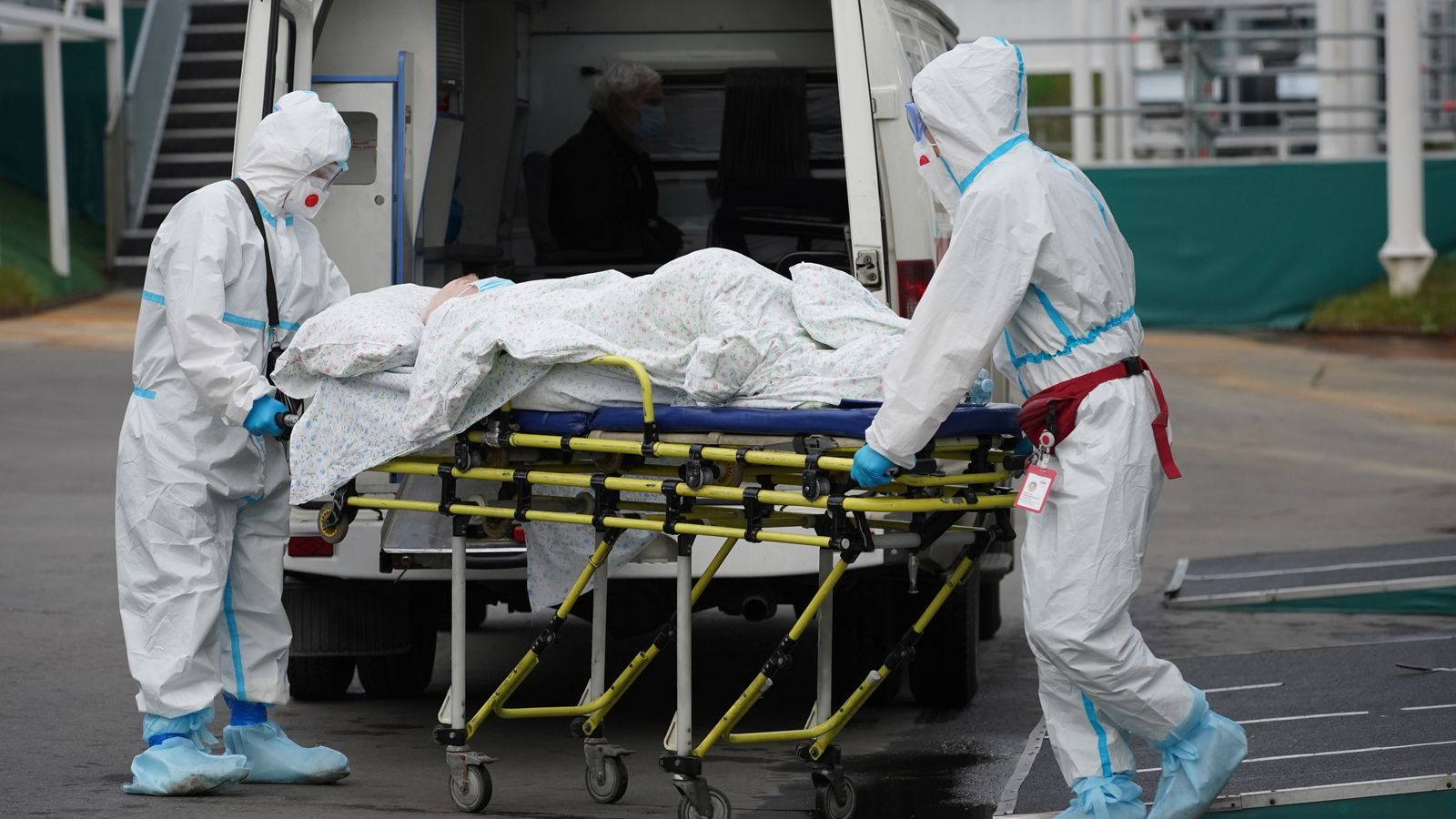More than 1,000 weekly COVID deaths have been recorded in England and Wales for the first time in eight months.
A total of 1,020 deaths were registered in the week ending 12 November where coronavirus was mentioned on the death certificate, the Office for National Statistics (ONS) said.
During the seven-day period, COVID accounted for about one in 12 deaths that were registered – a 3% increase from the previous week, when 995 deaths were recorded.
Live COVID updates from the UK and around the world
12,050 deaths were registered in England and Wales in the week ending 12 November 2021 (Week 45).
This was
▪ 500 more than the previous week
▪ 1,719 (16.6%) more than the five-year average
➡️ https://t.co/dHmt5Rh37m pic.twitter.com/I57UVZOuVT
It is the first time the weekly total has passed 1,000 since the week ending 12 March, during the 2021 national lockdown.
Registered deaths involving the virus increased in six of the nine English regions and fell in Wales.
People aged 80 and over accounted for 44.6% of the deaths registered in the seven days to 12 November.
COVID-19: Take a lateral flow test before you visit busy places this Christmas, says government
COVID-19: Austria coronavirus lockdown feels not just like a health crisis, but also a cultural, social and political storm
Germans will be ‘vaccinated, recovered or dead’ by end of winter, health minister Jens Spahn says as COVID cases surge
This is the lowest proportion for this age group since the week ending 27 August, according to analysis by the PA news agency.
The figure is down from 46.2% in the previous week and 50.4% two weeks earlier.
The drop might reflect the impact of COVID-19 booster vaccines, which began to be rolled out in late September to all over-50s who were at least six months on from their second dose.
People aged 80 and over were one of the first groups eligible for the jab, as they would have received their second dose early in the year.
Latest data shows 43.2% of people in that age group who are eligible for the booster have already received it.
Deaths from COVID are up, again, according to the latest data from the Office for National Statistics. But that doesn’t mean England and Wales are following other European countries into another bleak wave of the disease.
There are two factors that help to explain why there was a 3% rise in registered deaths in the week ending 12 November.
One is the rise in cases in October. Much of that surge was in schoolchildren, but with more virus circulating in the population, it was sadly inevitable that it would reach some vulnerable people.
The second factor is waning immunity. Anyone over 50 will have had their second vaccine dose so long ago that their protection against the virus is beginning to drop, putting them at risk.
But there is good news in other data from the ONS. The rollout of the vaccine booster, with the elderly at the front of the queue, is leading to a rapid rise in immunity.
The proportion of over 80s with antibodies had dropped to 88% in September but has now climbed to almost 96%. The same trend is emerging in people in their 70s.
That will reduce their risk of serious illness in the coming weeks. And it’s further evidence that having the booster is well worthwhile.
However, 60 to 79-year-olds accounted for 44.3% of deaths registered in the same week- the highest percentage for this age group since the seven days up to 28 May.
There were 12,050 deaths from all causes recorded in the week ending 12 November, which is up 500 from the previous week.
It is also 16.6% higher than the five-year average number of fatalities recorded for this period.
Since the start of the pandemic, 169,767 deaths have occurred across the UK where COVID was mentioned on the death certificate, according to ONS.






















